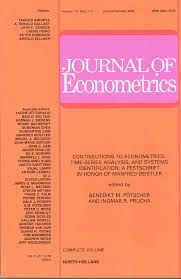
Bloemen, H. (1997). Job search theory, labour supply and unemployment duration Journal of Econometrics, 79(2):305--325.
-
Affiliated author
-
Publication year1997
-
JournalJournal of Econometrics
This paper presents a structural model of sequential job search, in which the individual decision makers incorporate labour supply in the job acceptance decision. The model satisfies the reservation wage property. Given the level of the offered wage rate, individuals can choose the number of weekly working hours optimally, by maximizing utility subject to the budget constraint. Specific attention is paid to the stochastic specification. The utility function contains an unobserved random component, and the job offer arrival rate contains unobserved heterogeneity. The search model is used to construct a stationary model of unemployment duration. In estimating the model, simulation methods are used to integrate out unobserved heterogeneity. The goodness of fit of the model is examined by analysis of the residuals.